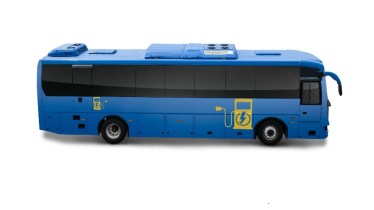By Sudhakar Chirra
We are presently experiencing a worldwide transition towards sustainability, and electric vehicles (EVs) are emerging as revolutionary forces determining the future of urban mobility. However, it is critical to investigate the many ways in which Electric Vehicles contribute to sustainable urban and interstate transportation while addressing the fundamental challenges brought by rising urbanisation.
India, witnessing rapid urbanisation, comes with traffic congestion, air pollution, and travel delays. With 70% of the population projected to reside in cities by 2025 (as per the National Commission on Population (NCP)), a robust, efficient, and eco-friendly urban transportation system is paramount. Positioned on the brink of an electric revolution, India is poised to lead the world in electric transportation with strong government support and practical initiatives.
As India shifts to an electric transportation paradigm, developing a green transnational transportation infrastructure becomes critical for environmentally friendly urban mobility. The county has the opportunity to set the world standard for establishing an efficient transnational transport system by expertly managing connections, infrastructure, operations, and policy alignment.
According to the Federation of Automobile Dealers Association (FADA), sales of electric vehicles in India jumped 49.25 percent year-on-year to 15,29,947 units in 2023.
The surge in sales, particularly in e-two-wheelers and e-three-wheelers, signifies a growing market interest in electric automobiles. Electric passenger vehicle sales increased by 114.71 percent in 2023 to 82,105 units, compared to 38,240 vehicles in 2022. This data demonstrates the market’s growing interest in electric vehicles and how we will see a completely new situation in terms of urban and intercity transit in the coming days.
Air pollution poses severe health risks in urban centers. According to the Indian Institute of Toxicology Research (IITR), combustion vehicles were one of the leading contributors to air pollution in metropolitan centers resulting in poor air quality index. On the other hand, EVs, emitting zero tailpipe emissions, promise cleaner air for city dwellers. Adopting electric mobility not only reduces hazardous emissions, but it also improves air quality, resulting in better urban settings.
EVs contribute to calmer urban areas in addition to improving air quality. The relatively silent operation of electric cars reduces noise pollution, encouraging tranquility in congested urban environments. This is because EVs in urban centers are improving livability and reducing carbon footprints by replacing conventional vehicles with zero-emission ones, contributing to global climate change mitigation efforts.
The proactive adoption of EVs ushers cities into a new age of technological innovation. Advanced battery technology, charging infrastructure, and smart grid systems are reshaping metropolitan environments. Cities should adopt a comprehensive approach to urban planning to fully embrace electric vehicles.
This includes focusing on sustainable goals and establishing charging infrastructures that fit the urban environment. This aligns with eco-friendly practices and aims to create accessible public transportation, pedestrian-friendly networks, and charging stations. As electric vehicle usage grows, it presents opportunities for economic growth, job creation, and the emergence of innovative industries. Additionally, electric vehicles can serve as mobile energy storage units, providing decentralised energy sources and reducing strain during peak energy demand.
Urban communities all over the planet are progressively embracing electric vehicles as an answer to the developing urbanisation peculiarity. These imaginative methods of transportation battle harmful emanations, yet additionally add to cleaner air, minimise noise pollution, and boost economic development. As metropolitan regions coordinate electric vehicles into their transportation frameworks, they are going through a total change toward a more maintainable future. These vehicles are not just a means for getting around, but rather act as strong catalysts for the development of cities, paving the way for a greener and more economically conscious society.
The author is Founder & CEO, FreshBus.
Disclaimer: The views and opinions expressed in this article are solely those of the original author. These views and opinions do not represent those of The Indian Express Group or its employees.
